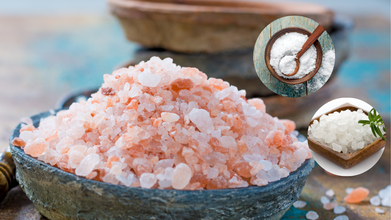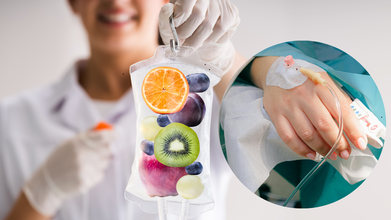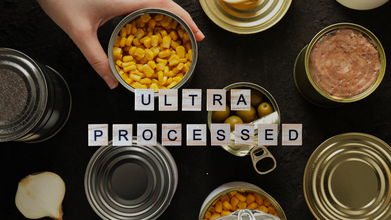- Health Conditions A-Z
- Health & Wellness
- Nutrition
- Fitness
- Health News
- Ayurveda
- Videos
- Medicine A-Z
- Parenting
- Web Stories
The Truth About Supplements: Timing, Pairing & Usage Mistakes You Didn’t Know

Credits: Health and me
Whether you reach for a multivitamin with your morning coffee or pop an iron pill after lunch, chances are you’ve put more effort into remembering to take your supplements than considering when and how you should take them. Yet, experts agree: timing, pairing, and even the way you take your supplements can dramatically influence their effectiveness—and in some cases, your safety.
From colorful pillboxes to gummy multivitamins, the supplement industry is booming. But here’s the catch: even the most consistent supplement-takers might be getting it all wrong—not because they’re skipping doses, but because they’re taking them at the wrong time, with the wrong foods, or in the wrong combinations.
What most people don’t realize is that the when and how of taking supplements is as important as the what. So if you’ve been chasing your vitamins down with your morning latte or swallowing iron with your dinner yogurt, it might be time for a serious reset.
Supplements are not magic bullets; they are concentrated forms of vitamins, minerals, and other nutrients designed to fill dietary gaps but unlike food, which delivers nutrients in a complex matrix of fibers, phytochemicals, and macronutrients, supplements are isolated. This means their absorption and utility can be heavily influenced by what else is in your stomach, your daily routine, and even the time of day.
Why Timing Really Matters?
You might think vitamins work like magic pills—take them, and you're covered. But the truth is more nuanced. The body’s ability to absorb and use nutrients depends on a variety of factors: the time of day, what you've eaten, your activity level, and even the combination of nutrients being consumed.
Water-soluble vitamins (like B-complex and C) are best taken on an empty stomach, usually in the morning. They dissolve in water and are quickly absorbed. Fat-soluble vitamins (like A, D, E, and K), on the other hand, need to be taken with healthy fats to be absorbed properly.
How Your Supplement Routine Might Look Like
| Supplement | Best Time to Take | Take With | Avoid With | Why It Matters |
| Vitamin B12 | Morning (empty stomach) | Water or light food | High-dose Vitamin C or iron | Supports energy metabolism and neurological function |
| Iron | Morning | Vitamin C-rich drinks (lemon, amla juice) | Calcium, tea, coffee, dairy | Enhances hemoglobin production and oxygen delivery |
| Folic Acid | Morning (with B12) | Vitamin B12, Vitamin C | High-dose zinc and antacids | Promotes red blood cell formation and DNA synthesis |
| Biotin | Morning (with breakfast) | With or after meal | Raw egg whites | Supports healthy hair, skin, nails, and energy metabolism |
| Vitamin D | Midday (with lunch) | Fat-rich meal (ghee, nuts, avocado) | Empty stomach | Improves bone health and immune function |
| Omega-3 | Lunch or dinner | Healthy fats, Vitamin D | Empty stomach (may cause nausea) | Supports heart, brain function, and inflammation control |
| Magnesium | Evening or bedtime | Alone or with water | High-dose calcium or iron | Promotes calm, muscle recovery, and sleep |
| Calcium | Evening or post-dinner | Water or post-meal | Iron, magnesium, zinc | Enhances bone strength; best absorbed later in the day |
| Ashwagandha | Night (if for stress/sleep) | Warm milk or water | Caffeine | Calming adaptogen that supports sleep and cortisol balance |
Why You Shouldn’t Take Them All at Once
Tempted to down all your pills with breakfast and call it a day? It’s not that simple. Certain combinations can interfere with each other or overwhelm your digestive system. For instance:
- Calcium inhibits iron absorption
- Magnesium competes with calcium
- High doses of vitamin C can impair B12 absorption
- Some supplements can thin the blood—dangerous when mixed with medications
Always stagger supplements across your day and never exceed the recommended dosage, especially if your diet includes fortified foods (like cereals and snack bars), which can sneak in additional vitamins.
Most Common Mistakes People Make
1. Taking All Your Supplements at Once
It’s tempting to swallow a handful of pills first thing in the morning and be done with it. However, not all supplements play well together. For example, calcium and iron compete for absorption and should be taken at different times. Similarly, high-dose vitamin C can interfere with B12 absorption, and magnesium can block calcium uptake if consumed together in large amounts.
2. Overlapping and Double Dosing
With the proliferation of fortified foods and “broad-spectrum” supplements, it’s easy to accidentally exceed the recommended daily allowances for certain nutrients. Overdosing on vitamins like A, D, or iron can have serious health consequences. Always check labels and be mindful of what’s in your multivitamin, individual supplements, and fortified foods.
3. Using Supplements as a Substitute for Food
Supplements are intended to complement, not replace, a healthy diet. Whole foods provide a complex array of nutrients, including phytochemicals and fibers, that supplements alone cannot match. For most people, a varied, unprocessed diet remains the best source of vitamins and minerals.
What's The Food vs. Supplement Debate?
Supplements can help fill nutritional gaps, especially if you follow a restricted or vegetarian diet. But they’re not substitutes for a healthy lifestyle. Understanding the nuances of when and how to take them can dramatically improve their effectiveness.
Build a consistent routine, time your supplements strategically, and pair them with the right foods. Most importantly, prioritize whole foods—and let supplements support your health, not replace it.
Research consistently shows that nutrients from whole foods are more beneficial than those from pills. Foods contain not just vitamins and minerals, but also a host of phytochemicals—plant-based compounds that work synergistically to reduce the risk of chronic diseases like heart disease and cancer. Supplements, by contrast, deliver isolated nutrients, often without the supporting cast that makes them effective in nature.
How To Build a Smarter Supplement Routine?
The best supplement routine is one you can stick to consistently, but also one that’s tailored to your lifestyle, diet, and health needs. Here are some expert tips:
Personalize: Not everyone needs the same supplements. Get your nutrient levels checked and consult a healthcare professional before starting any new regimen.
Time It Right: Stagger your supplements throughout the day to maximize absorption and minimize interactions.
Stay Informed: Read labels, be aware of fortified foods, and avoid “megadoses” unless prescribed.
Prioritize Food: Aim to get most of your nutrients from a varied, whole-foods diet.
Disclaimer: This article is for informational purposes only and does not constitute medical advice. Always consult a qualified healthcare provider before starting any new supplements, especially if you have existing health conditions, are on medication, or are pregnant or breastfeeding. Individual nutritional needs may vary.
Pink Salt, Sea Salt, Celtic Salt: Are They Really Beneficial Or Just Some Fancy Names

Credits: Canva
Social media platforms have taught us a lot about health, but sometimes, it has also tricked us into believing things which may not be in the best interest of us. Now, we are hearing more and more about the trend of using Himalayan salt and replacing the table salt, which we would commonly use. For some, using this salt in beverage helps them lose weight. While for others, the variants like Celtic salts and seat salts are mineral-rich alternatives. However, doctors say otherwise.
What Is The Reality of Pink Salt, Sea Salt And Celtic Salt?
Celtic Salt is unrefined and non-processed salt without harsh chemicals or anti-caking agents. It naturally contains a wide array of minerals, including magnesium, calcium, potassium, zinc, and iron, in addition to sodium chloride.
While sea salt has the same mineral compounds, it is more dry in nature and has more variation in texture, from ultra-fine grains to large, and even flaky crystals.
Pink salt or Himalayan salt is a type of rock salt, which is mined from Khewra Salt Mine in Pakistan, and is known for its distinctive pink hue from trace minerals like iron and potassium. It is natural, unrefined, and is known for the mineral-rich component that it is.
However when doctors are asked whether such unrefined, raw, and mineral-rich salt should be substituted for the regular table salt, their answer is "No".
Dr Shipra Gulati, consultant physician at Sir Ganga Ram Hospital said that any form of rock salt, while rich in mineral, is associated with thyroid problems. Why? Because these salts lack iodine, which is present in common salt. Absence of iodine leads to thyroid problems, notes the World Health Organization (WHO). This is why the government of many countries have iodised the salt so thyroid issues could be prevented. When one substitutes any other salt with regular iodised salt, then the risk to thyroid, brain damage and mental retardation increases.
What About Blood Pressure?
Dr Gulati also cites examples of where people replace rock salt with regular table salt stating hypertension reasons. However, she says, "the component of sodium chloride is same in both the salts". Thus, replacing the salt will not be fruitful.
What About The Minerals?
Health guidelines by American Heart Association suggests the upper limit is 2,300 mg, which is roughly 1 teaspoon a day. Experts point out that in order to actually utilise the minerals present in other salts, one must consume more than the recommended levels of salt, as consuming just 1 teaspoon a day will not make any difference in terms of the minerals. However, if more than this amount is consumed, it could trigger high blood pressure, as sodium chloride are almost same for all the salts.
Dr Susan Cheng and Dr Evan Levine, two cardiologists, reported by Today.com noted that using too much "fancy" salts could be more detrimental to your health.
Dr Cheng says that coarser texture from rock salt, Celtic salt or sea salt and their larger crystal could make it simple to unknowingly overuse them. "The satisfying crunch makes you feel like you're using a little bit, but really you're adding a lot of extra sodium."
Dr Levine suggests: "Don't fall for the salt hype". Dr Levine also bursts health myths on TikTok and says that many people consume the alternatives for being "less processes". However, "it is sodium chloride, just like your regular salt. The so-called benefits are negligible. You are still eating salt."
IV Hydration For Vitamins Could Be Putting Your Life At Risk, According To Doctors

Credits: Canva
While more and more IV hydration spas are coming up in the US, a new study published on October 6 in JAMA Internal Medicine found that IV hydration industry operates with almost no regulation and little medical evidence to support its supposed health benefits.
The co-author of the study Dr Peter Lurie, who is the president of the Center for Science in the Public Interest told the NBC News that these businesses are operating "almost completely without evidence. As a result there is a real danger to consumers".
In the US, out of the 50 states, or 32 have some kind of rule or policy related to IV hydration services, however, only four states: Alabama, North Carolina, South Caroline and Vermont have a comprehensive oversight. These hydration spas offer pricey vitamin infusions that promise energy, detox or immune support. Apart from the lack of evidence to sustain its claim on the benefits IV hydration supposedly offers, it is also an expensive process. According to the American Med Spa Association, this industry has exploded into a $15 billion wellness industry.
Is it really worth it?
Here is what the doctors say about IV hydration:
Dr Shrey Kumar Srivastav, Senior Consultant, Internal Medicine at Sharda Hospital told Health and Me that while there is no standard frequency for IV therapy in healthy individuals, "frequent or routine use can cause vitamin toxicity or electrolyte imbalances."
Dr Prashant Sinha, Head of Emergency and Internal Medicine at PSRI Hospital, Delhi, said that for a healthy person with no diagnosed deficiency, there is generally no medical reason to receive IV supplements regularly. "Getting them too frequently can lead to nutrient overload or dependency, where the body becomes less efficient at natural nutrient absorption," he pointed out.
Both the doctors also debunk the claim that IV supplements are better than the vitamins one consumes through food. "Supplements taken orally or through food are typically safer, more sustainable, and sufficient for most people," explained Dr Srivastava.
Also Read: If You're Alone At Home And Experience A Heart Attack, Here's How You Survive: According To Doctor
Dr Sinha also clarified that IV supplements are in most cases not better than supplements consumed through food or medicines. "Whole foods provide not only individual nutrients but also fiber, antioxidants, and enzymes that support overall health. Oral supplements, when taken as prescribed and for medically confirmed deficiencies, are also effective for most people and pose far fewer risks than IV therapy," he points out.
Dr Srivastava further added that IV supplements are not superior to food or oral supplements for general wellness or weight loss. "The growing trend of using IV injections for cosmetic or slimming purposes is risky, unregulated, and can be fatal."
Lurie also said, "This is a medical system that exists largely outside of conventional medicine. We are also worried that there will be adverse effects related to this."
Alex Thiersch, the CEO of the American Med Spa Association said that many of the owners of these businesses do not realize that they are practicing medicine, however he notes, "If you are putting a needle in someone's vein, that's 100% medical practice."
War Against Ultra Processed Foods: New California Law Asks School To Phase It Out Soon

Credits: Canva
Ever since Donald Trump's administration has taken over with RFK Jr as the Health Minister, the war over ultra processed food has been declared. Now, California will phase out certain ultra processed meals over the next decade under a first-in-the-nation law signed Wednesday by Gov Gavin Newsom.
What Will This Law Do?
The first and foremost job of this law is to define what ultra processed foods are. The law seeks to define it as 'super-tasty products typically full of sugar, salt and unhealthy fats'. The law would require the state's Department of Public Health to adopt rules by mid-2028 defining 'ultra processed foods of concern' and 'restricted school foods'.
When Will The Schools Start Fading Out Foods?
The legislation requires the school to start phasing out these foods by July 2029, and districts will be barred from selling them for breakfast or lunch by July 2035. Vendors will also be banned from providing the 'foods of concern' to schools by 2032.
Jennifer Siebel Newsom and state lawmakers also signed the measure at a middle school in Los Angeles.
“California has never waited for Washington or anyone else to lead on kids’ health, we’ve been out front for years, removing harmful additives and improving school nutrition,” Newsom said in a statement. "This first-in-the-nation law builds on that work to make sure every California student has access to healthy, delicious meals that help them thrive.”
Newsom had issued an executive order earlier this year that required the Department of Public Health to provide recommendations by April on limiting harms from ultra processed foods. The Democratic governor also signed a law in 2023 that banned certain synthetic food dyes from school meals.
War Against Ultra Processed Foods
Legislatures from across the country have introduced some 100 bills or even more in the recent months to ban or require the labelling of chemicals that make up the ultra processed foods. These labeling include artificial dyes and controversial additives.
Why Is This Worrying?
Americans get more than half of their calories from ultra processed foods. This has been linked to many health problems, including obesity, diabetes, and heart diseases. However, it has still not been studied much to prove that foods directly impact these chronic health issues.
How To Define Ultra Processed Foods?
Defining “ultra processed foods” has always been a bit complicated. The most widely used system, the Nova classification developed by Brazilian researchers, sorts foods into four categories based on how much they’re processed.
In general, ultra processed foods are those that contain industrial ingredients you’d never find in a home kitchen—think additives, flavor enhancers, and preservatives. However, the line isn’t always clear. Some highly processed foods, like tofu, certain whole-grain breads, or infant formulas, can still be nutritious. Researchers continue to debate whether it’s the processing itself or the combination of sugar, fat, and salt that drives negative health outcomes.
To settle the confusion, U.S. health officials have recently begun working on a federal definition of ultra processed foods, noting that current descriptions might not fully capture which foods pose real health concerns.
© 2024 Bennett, Coleman & Company Limited

